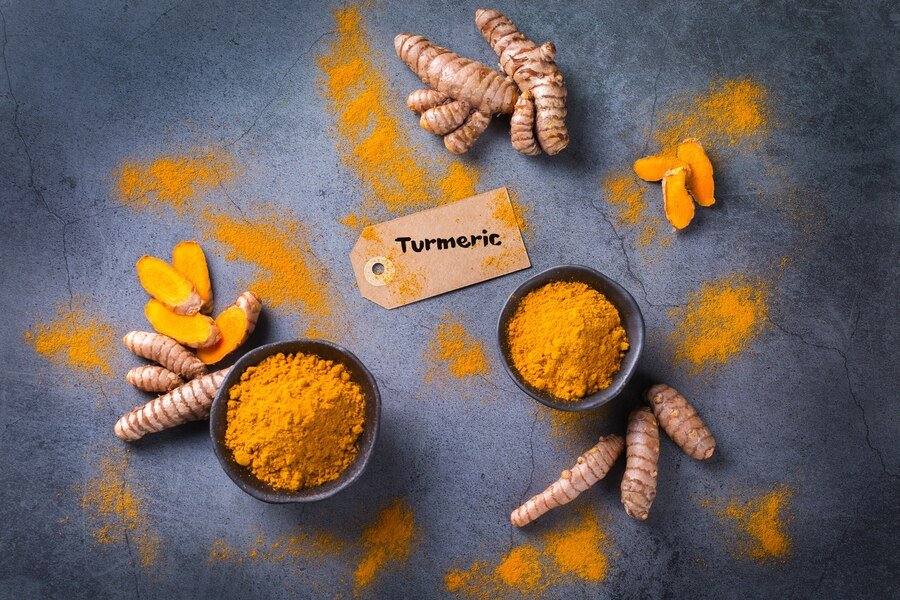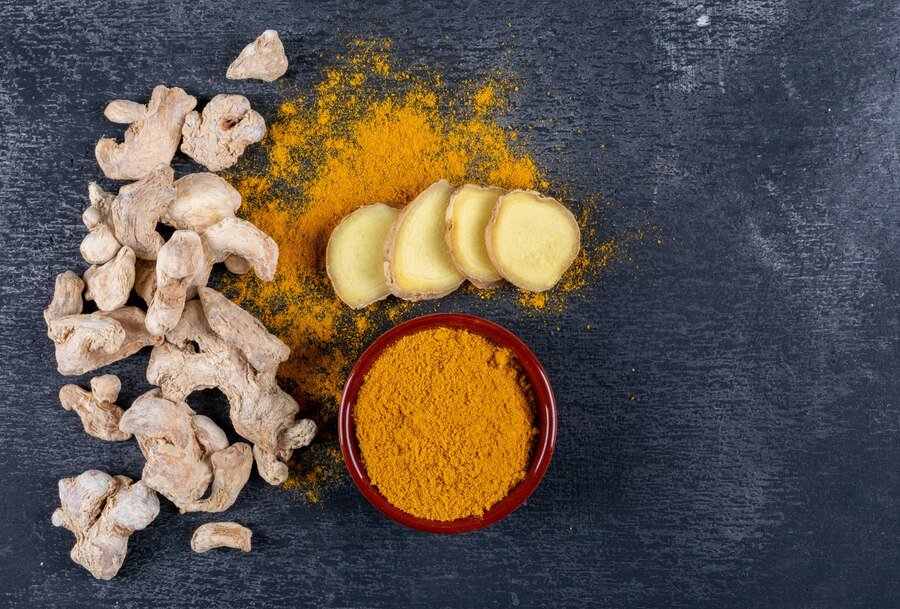What Is turmeric ?
Health Benefits Of Turmeric What Is Turmeric (Curcuma Longa)? Its turmeric, an essential part of ginger family, gives curry its trademark yellow hue and greatly affects both taste and composition of any food it’s combined with. Renowned for its health benefits (particularly relaxing properties) as well as widespread jungle development, turmeric has attracted significant press coverage over time.

Nutritional Benefits Of Turmeric
One tablespoon of ground turmeric powder contains roughly:
- 29 kcal/123 KJ
- 9g protein
- 4g carbohydrates
- 1g fiber
- 3g fat
- 196mg potassium
- 7mg iron
What Are The 5 Top Health Benefits Of Turmeric ?
- Contains Bioactive Compounds Which Have Protective Properties
Plant food varieties with vivid hues are great for our health, with turmeric being no exception. A significant portion of turmeric’s zest stems from its powerful bio-active component curcumin which constitutes approximately three percent by weight in its roots – yet another beneficial constituent in turmeric! Curcumin should not be seen as solely responsible for turmeric’s benefits as there are many bioactive compounds found within its roots which make up its essence and influence its flavor profile.
These compounds offer tremendous value to the body by aiding against the harmful effects of oxidation, an age-related process which causes chronic irritation that, over time, may lead to heart disease, type 2 diabetes and cancer. Supplementing our diets with protective food sources enables our bodies to better adapt to aging-related irritation as well as exercise-induce muscle soreness or irritation.
- May Help Ease Arthritis
Turmeric and curcumin have shown promising health benefits that could reduce body inflammation. Studies comparing its anti-inflammatories properties against those of nonsteroidal anti-inflammatory drugs (NSAIDS) have proven its worth; as have animal trials exploring curcumin’s potential as a treatment for arthritis. While preliminary clinical research may show promising results for managing arthritis symptoms using curcumin, more detailed and systematic trials need to be completed in order to ascertain adequacy; particularly among people who rely on NSAIDS medications for managing symptoms.

- May Support Cognitive Function
Turmerone, another active compound found in turmeric, could potentially provide therapeutic value in treating stroke and Alzheimer’s diseases as it helps trigger cell repair processes that could aide recovery of brain function. Studies indicate the potential utility of Turmerone.
- May Bring Down The Risk Of Cardiovascular Disease
Studies suggest that curcumin’s antioxidant and mitigating properties could provide some protection from some of the steps associated with heart disease, including increasing cholesterol levels further.
- May Support The Immune System
Study findings indicate curcumin could function as an immune modulator affecting key immune cells including T, B and Natural Killer cells. Curcumin may also work by modulating proinflammatory compounds known as cytokines that could otherwise trigger further damage over time. When taken at low doses, curcumin can improve neutralizer reactions helping us avoid infections; animal studies even indicate it could play a part in managing sensitivities like roughage fever.
Is Turmeric Ok For Everybody ?

Turmeric is generally safe to consume; however, there may be certain situations in which caution must be exercised.
If you are pregnant, curcumin should be consumed only in limited amounts since studies on animals suggest it may alter levels of estrogen. Still, tasting its flavor at meals or beverages might provide benefits during your gestation.
If you have low iron levels and suffer from iron deficiency anemia, avoid large quantities of turmeric as its compounds seem to stick together and restrict assimilation in your digestive system.
If you suffer from gallstones, bile pipe check or liver disease, turmeric can aggravate symptoms. Since it increases bile discharge by increasing its consumption in large amounts through food consumption. Doing this could only aggravate them further and worsen symptoms further.
If you are taking medication, such as blood thinning drugs, diabetes medicine or PPIs such as omeprazole to relieve heartburn, it is wise to consult your GP or drug specialist for guidance and direction.
As far as turmeric’s impacts and communications go, much is still unknown; much of the available evidence comes from animal and in vitro studies; more investigation should be performed into its potential effects for human health.
If you’re considering making significant dietary or supplement changes or considering taking medications that could impact your health, be sure to seek professional advice first from either a GP or registered dietician to ensure they can do it without risk to their wellbeing.
Also Read: 10 Habits For A Healthier And More Productive Workday


